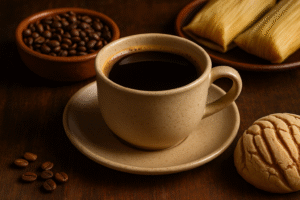Millennials—those born between 1981 and 1996—have transformed many industries with their unique values and behaviors.
Coffee is no exception. From what they drink to where they buy it, millennials are reshaping the coffee scene around the world.
Their preferences have influenced product innovation, café design, marketing strategies, and even global sourcing practices.
Understanding this generation’s relationship with coffee reveals broader trends in culture, identity, and consumer expectations.
Coffee as an Experience, Not Just a Drink
For millennials, coffee is more than caffeine. It’s an experience that fits into a broader lifestyle focused on intentionality, wellness, and creativity.
They don’t just buy a cup—they choose a place that aligns with their aesthetic, values, and vibe. The ambiance, service, and branding matter as much as the flavor.
Millennials often frequent cafés that offer a “third place” between work and home. These spaces are cozy, well-designed, and built for connection and productivity.
The Rise of Specialty Coffee and Artisan Preferences
Millennials are major drivers of the specialty coffee movement. They want quality, transparency, and storytelling in their cup.
They are curious about origin, roast level, and brewing method. They know the difference between Arabica and Robusta and can tell you whether they prefer pour-over, AeroPress, or cold brew.
They’re not satisfied with average. They seek out roasters who treat coffee as a craft and baristas who act as guides in flavor exploration.
Conscious Consumerism and Ethical Choices
Millennials are deeply concerned with ethics and sustainability. They want their coffee to reflect their values.
This means buying from roasters who pay fair prices to farmers, reduce carbon footprints, and use compostable packaging.
They’re more likely to support local cafés over large chains, and when they do visit major brands, they choose options with clear sustainability commitments.
Ethical sourcing isn’t a bonus—it’s expected. Transparency is key, and millennials will switch brands if they sense dishonesty.
Social Media and the Visual Culture of Coffee
This generation grew up with social media, and coffee has become a key part of their digital expression.
Latte art, aesthetic cafés, and photogenic flat whites fill their Instagram feeds. Coffee isn’t just consumed—it’s shared.
Cafés are often chosen for their “Instagrammability.” This has led to an emphasis on interior design, natural light, and visually appealing food and drink options.
Coffee becomes part of a personal brand—a lifestyle statement captured in curated posts and stories.
Customization and Personalization
Millennials value personalization. They want coffee that suits their dietary needs, flavor preferences, and daily habits.
From oat milk to sugar-free syrups, they expect options. Many customize their drinks down to the temperature and number of espresso shots.
Apps and online ordering platforms cater to this demand, allowing customers to tweak every aspect of their beverage.
This level of detail makes the experience feel tailor-made, increasing loyalty and satisfaction.
Embracing Technology in Coffee Culture
Millennials are tech-savvy and appreciate digital convenience in their coffee experience.
They use mobile apps to order ahead, track loyalty rewards, and even learn about coffee origins and tasting notes.
Some prefer smart coffee machines at home that can be controlled via smartphone or voice assistant.
Technology enhances their experience without compromising quality. The goal is efficiency that still feels human.
Health and Wellness Trends
This generation is highly health-conscious. Many millennials reduce sugar, choose plant-based milks, and look for added benefits in their drinks.
Mushroom coffee, adaptogen-infused brews, and CBD coffee are examples of health trends millennials have embraced.
They also pay attention to how coffee affects their sleep, anxiety, and energy levels, often alternating with matcha or herbal lattes.
Their choices reflect a broader interest in balance and well-being, not just stimulation.
Community and Coffee Shop Culture
Millennials crave connection, and local coffee shops provide more than just drinks—they offer a sense of belonging.
Events like open mic nights, art shows, and community meetings are common in millennial-oriented cafés.
These venues support local artists, promote causes, and create inclusive spaces for diverse groups.
The community aspect makes a coffee shop feel like home, encouraging regular visits and word-of-mouth promotion.
Coffee and Entrepreneurship
Millennials are also shaping the coffee industry as entrepreneurs. Many have launched micro-roasteries, specialty cafés, and mobile coffee carts.
They bring innovation, strong branding, and niche focus to their ventures—targeting specific audiences and values.
These businesses often use social platforms to build loyal followings, tell their story, and interact directly with customers.
They understand that coffee is not just a product but a relationship.
Rejection of Big Chains (But Not Always)
While some millennials avoid large coffee chains, others appreciate them for consistency and convenience.
However, they still expect quality and ethics. Chains that source responsibly, promote sustainability, and offer customization options do better with millennial customers.
Local feel, even within a chain, matters. Stores that reflect the neighborhood, use reclaimed materials, and employ knowledgeable baristas perform best.
Millennials don’t just want corporate coffee—they want character.
At-Home Brewing Culture
The pandemic accelerated the trend of making coffee at home. Millennials embraced it fully, turning kitchens into mini cafés.
They invested in grinders, scales, kettles, and espresso machines. They learned brewing techniques, followed coffee influencers, and experimented with recipes.
Home brewing became a hobby, a creative outlet, and even a form of therapy during uncertain times.
This shift increased appreciation for the complexity of coffee and deepened their understanding of the craft.
Diversity and Inclusion in Coffee Spaces
Millennials are champions of diversity. They support cafés that are inclusive, accessible, and representative of different backgrounds.
They value brands that speak out on social justice, offer safe spaces, and elevate marginalized voices in the industry.
Representation matters—from the baristas behind the counter to the farmers growing the beans.
Cafés that reflect these values become trusted spaces and attract loyal millennial customers.
Coffee Subcultures and Identity
Within the millennial demographic, there are coffee subcultures. Some identify as espresso purists, others as cold brew connoisseurs.
There are the minimalists who appreciate quiet third-wave cafés and the maximalists who seek seasonal drinks and creative menus.
Coffee helps define identity and community. It says something about who you are and how you move through the world.
Millennials embrace this, using coffee as both expression and connection.
Global Influence and Travel
Millennials love travel, and coffee is part of the journey. They seek out local cafés in new cities and explore regional coffee traditions.
This global curiosity influences their preferences. They might fall in love with Turkish coffee in Istanbul, or bring home beans from a small farm in Costa Rica.
Travel and coffee become intertwined—each cup a memory, each origin a story.
They often support cafés that reflect this international spirit and share stories through décor, menus, and bean selection.
The Future of Coffee Is Millennial
As this generation matures, their preferences continue to shape the industry. They demand better coffee, better ethics, and better experiences.
They support innovation but cherish tradition. They want community and convenience, personalization and purpose.
Coffee brands that listen to millennials and reflect their values will thrive.
Because for millennials, coffee is more than a habit—it’s a culture, a statement, and a way of life.

Marcio Luzardo is a coffee enthusiast and the voice behind Tudo Viraliza. With a passion for turning curiosity into practical knowledge, he shares easy-to-follow tips, guides, and insights to help readers enjoy better coffee every day. When he’s not writing, Marcio is exploring new brewing methods or diving into the rich stories that connect coffee to culture, lifestyle, and wellness.


